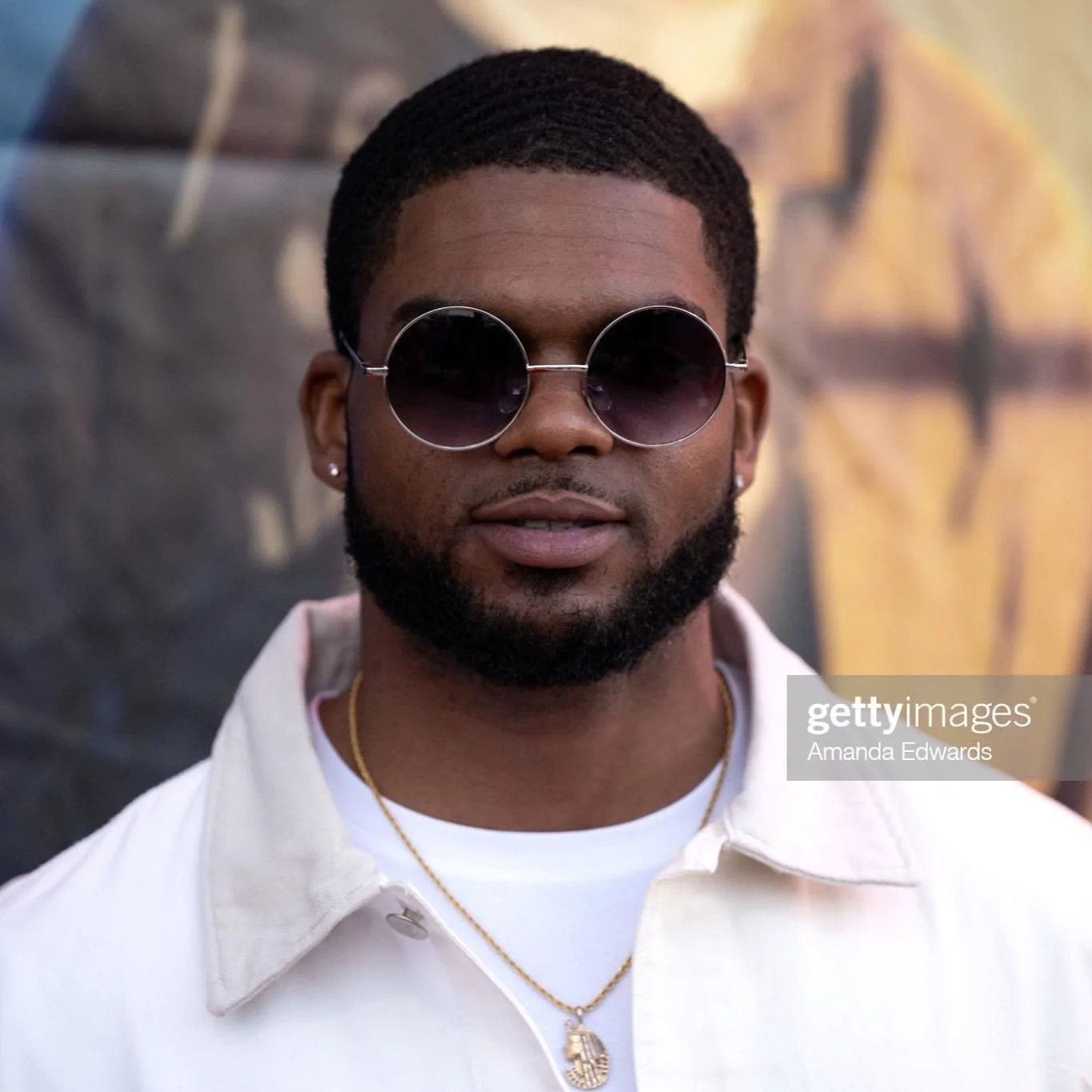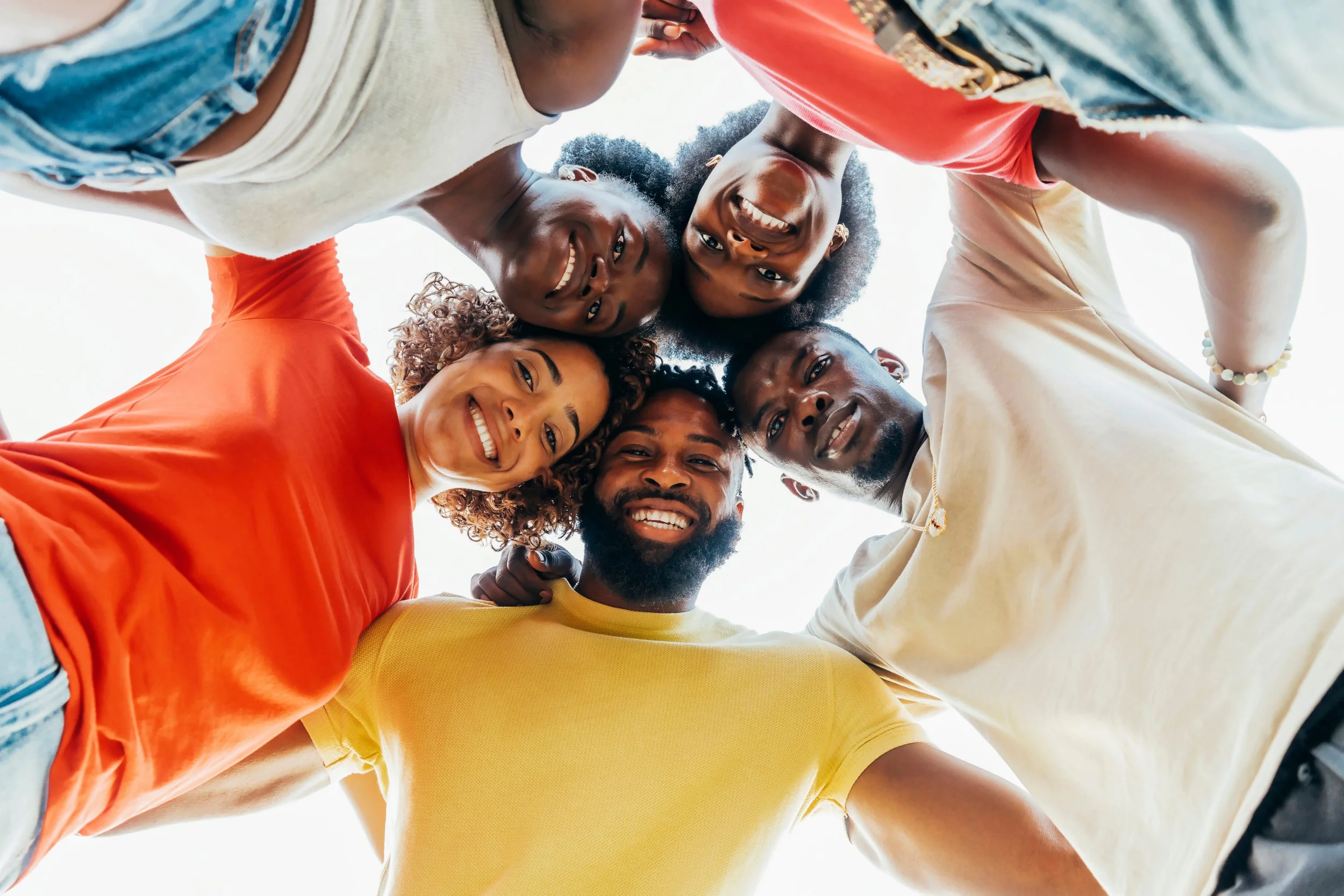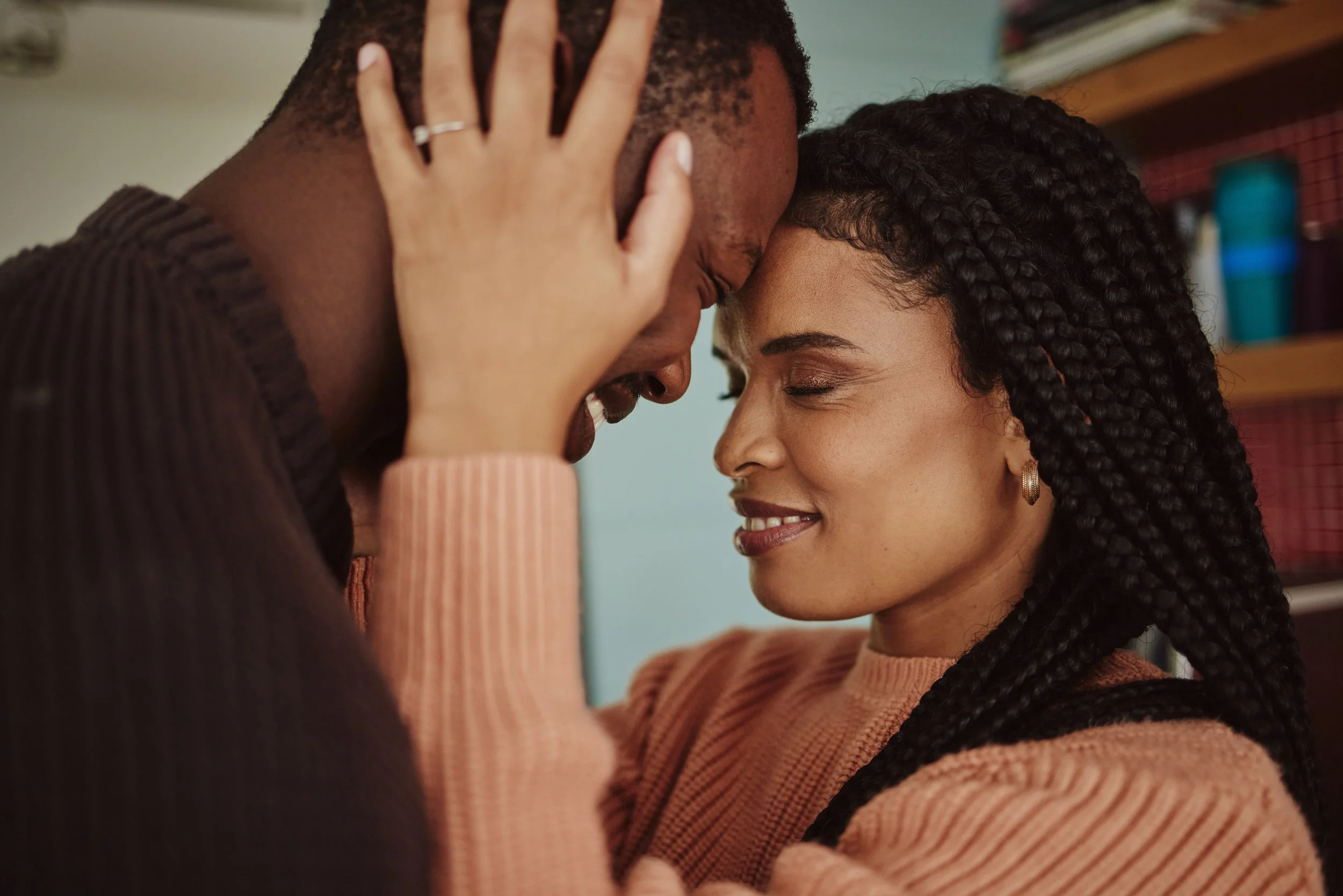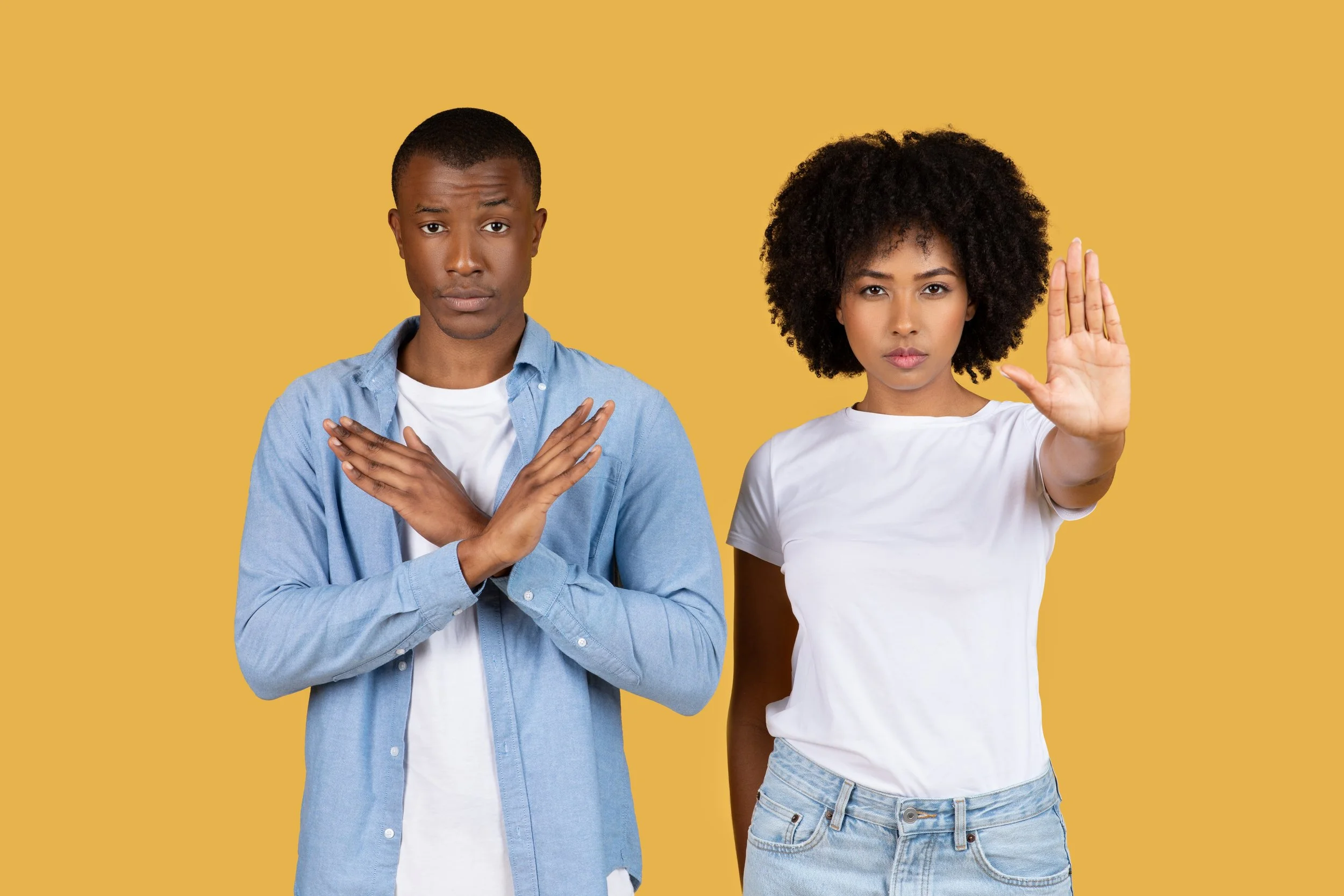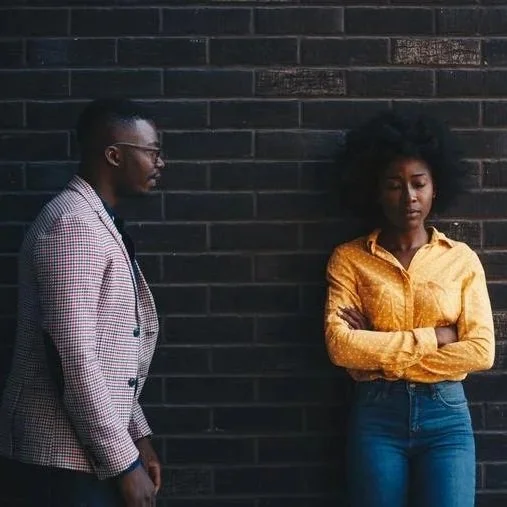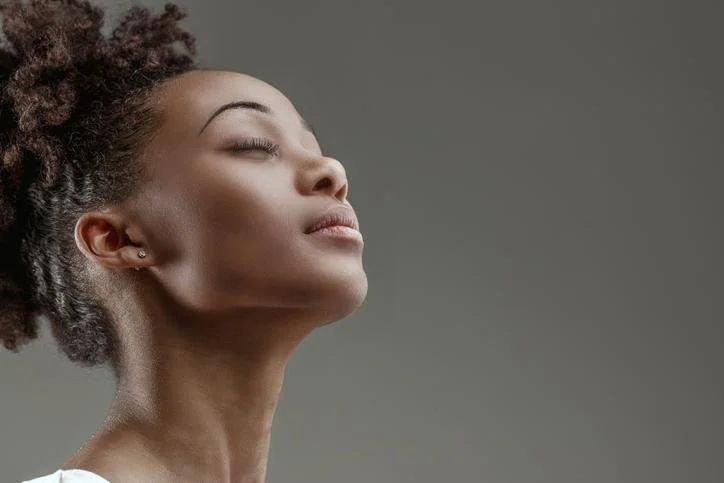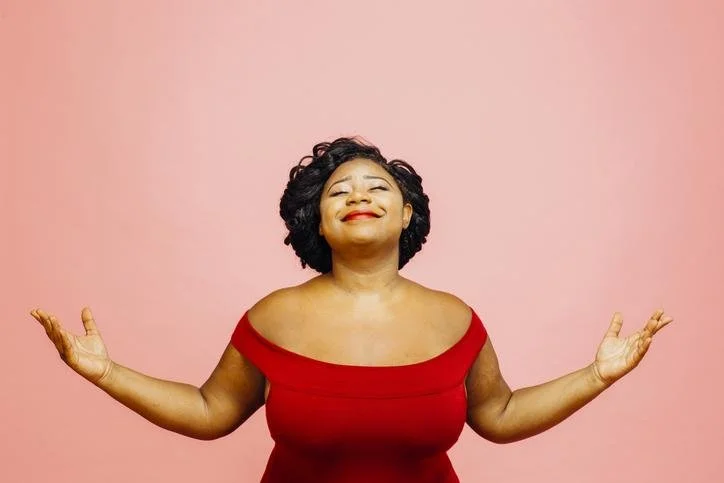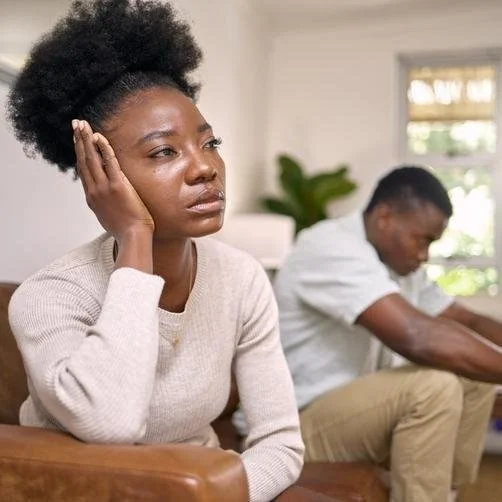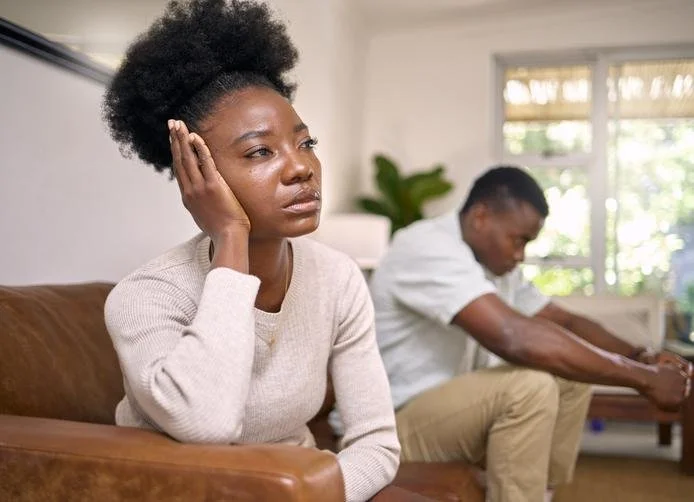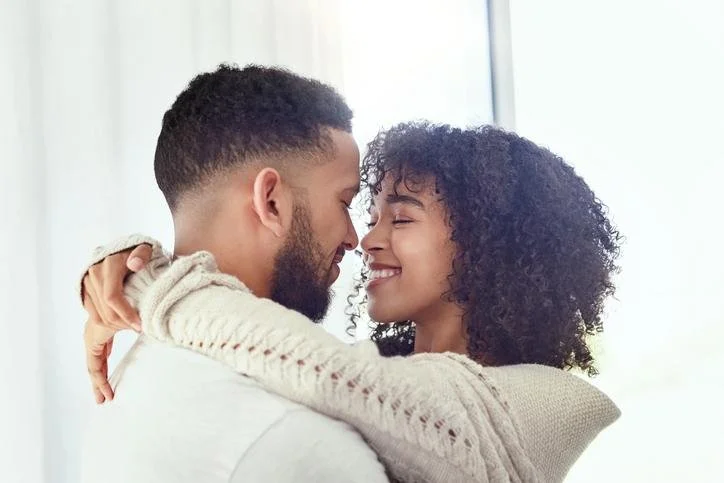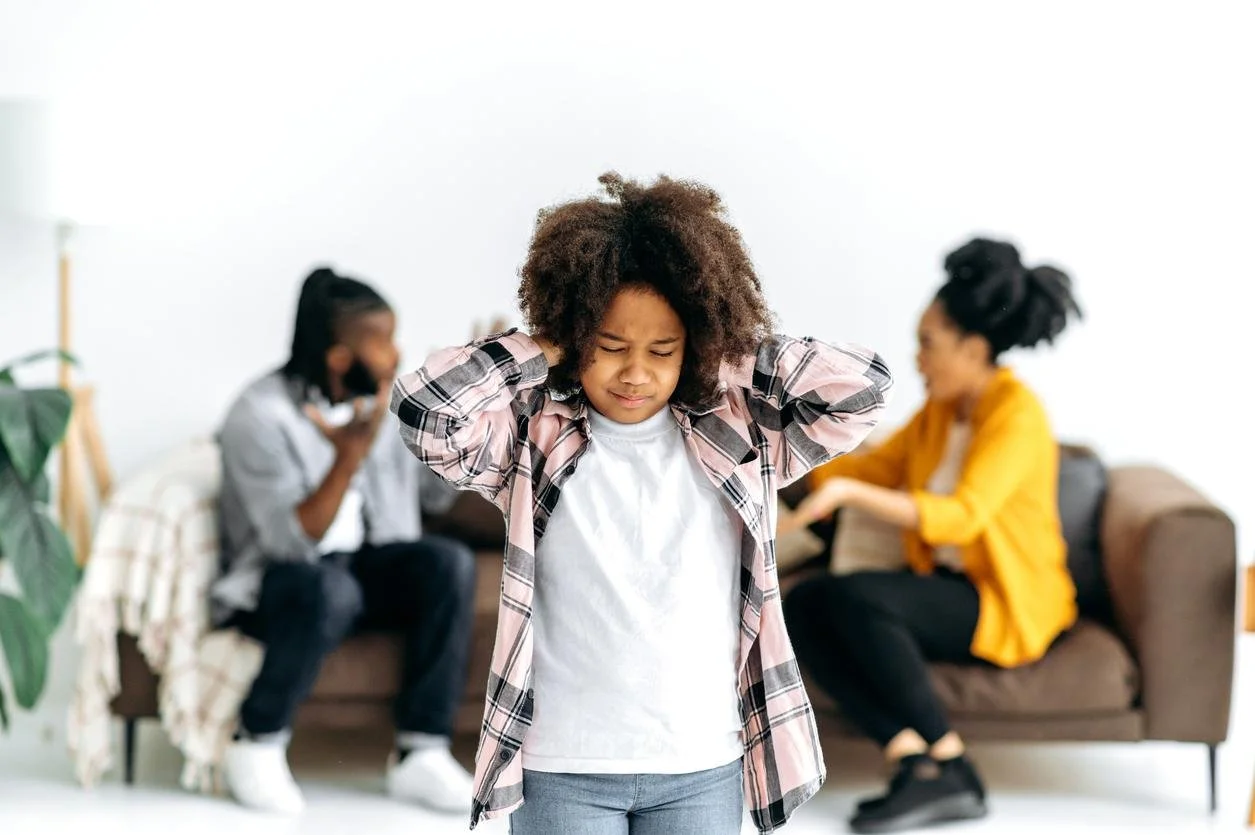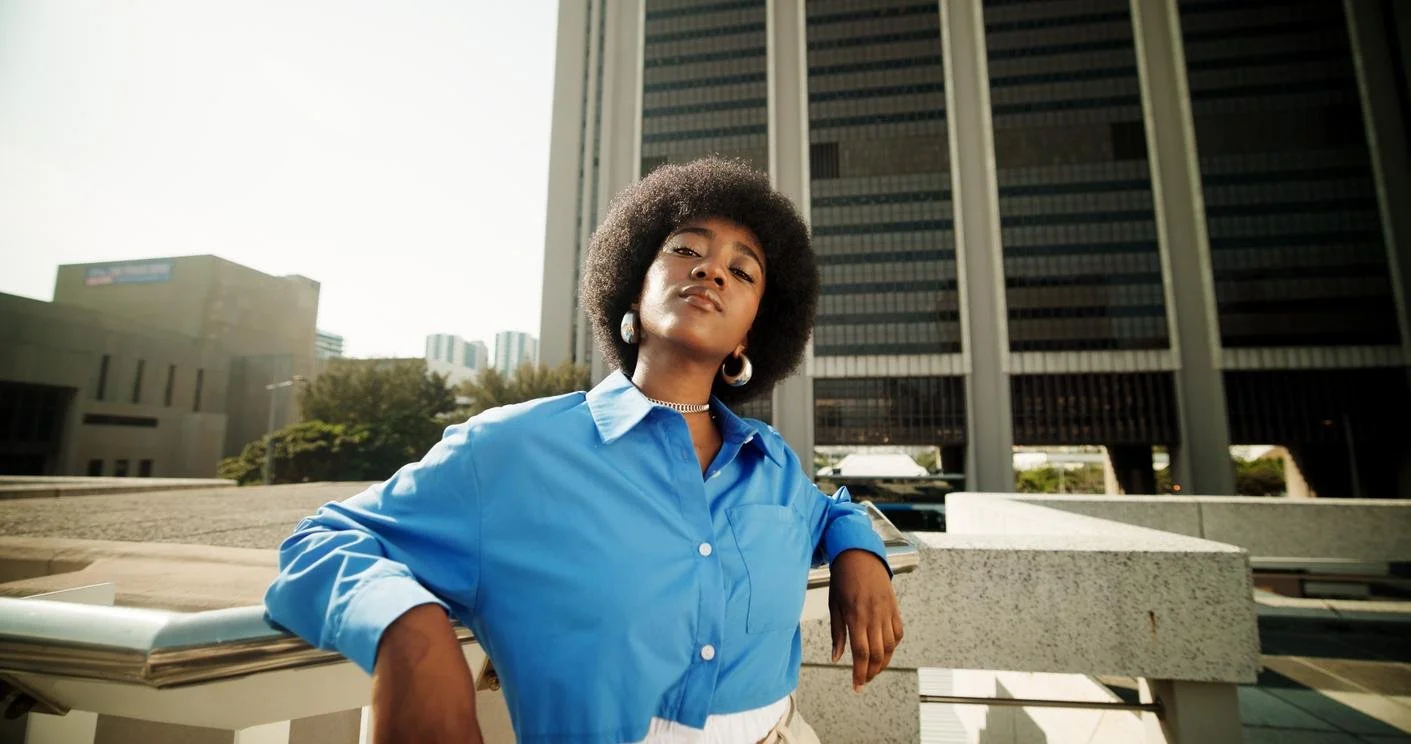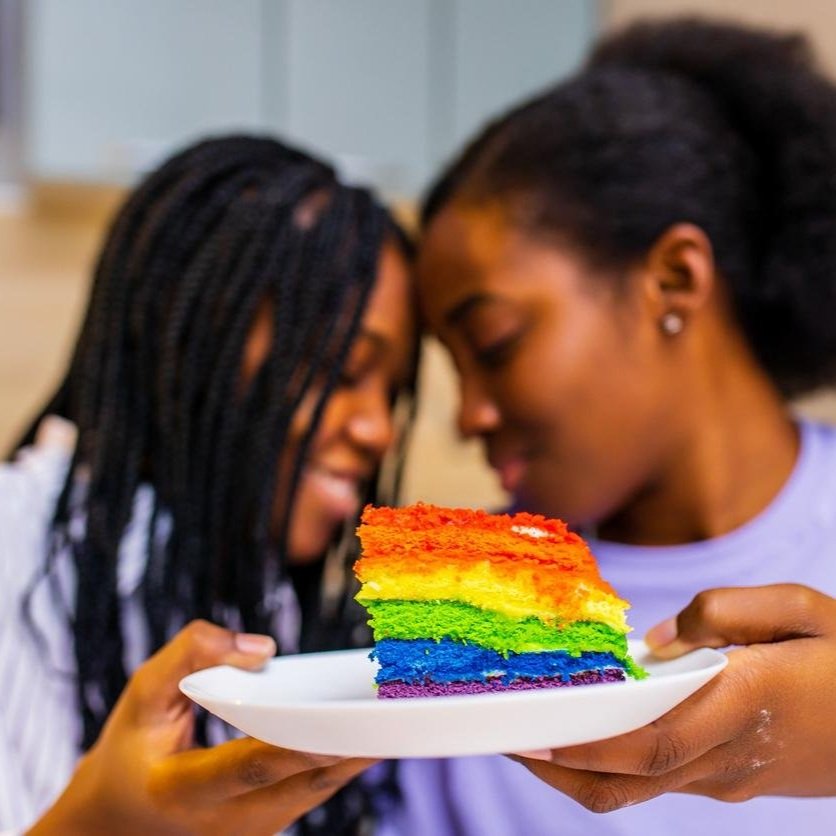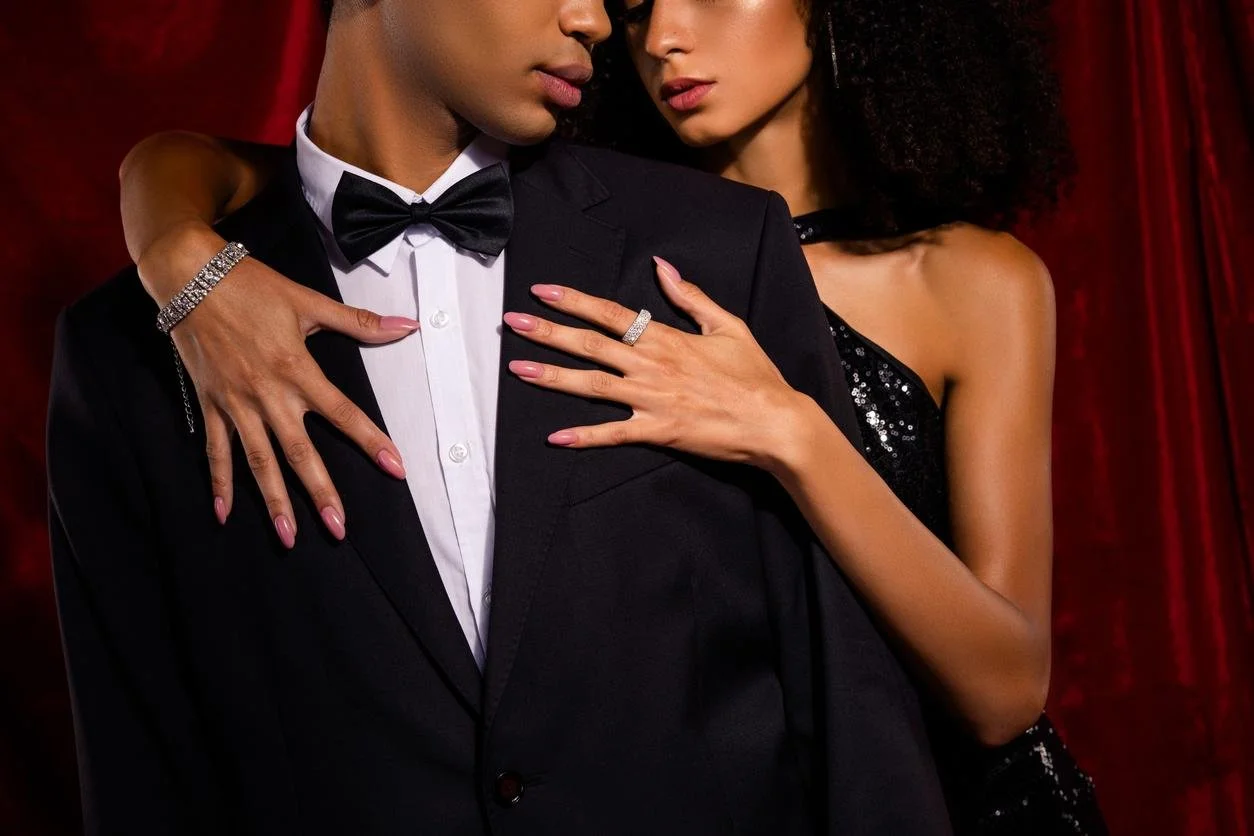Break Toxic Cycles: Why Self-Healing is Essential Before Jumping Into Another Relationship
Life has a way of teaching us that rushing into a new relationship without healing from the last only repeats old patterns, and taking time to focus on yourself first sets the stage for healthier love and lasting connection! We discuss it here!
Break Toxic Cycles
Credit: insta_photos via Shutterstock
By: Omar Cook
Life has a way of pushing us toward connection, and sometimes the easiest move is to jump from one relationship to the next. But here’s the truth: if you haven’t taken the time to heal, you’re more likely to attract the same patterns, mistakes, and heartbreak all over again.
Too often, we look at a failed relationship and point fingers at the other person, blaming them for what went wrong. But real healing starts when you look inward. Take the time to see where you went wrong, what wounds need attention, and how you can grow into a better version of yourself. That work isn’t always easy. Sitting alone with your thoughts can feel uncomfortable, even painful. But it’s necessary. Alone time is your chance to regroup, rebuild, and clarify exactly what you want from love and from yourself.
When you focus on yourself, your growth, and your healing, you naturally elevate the energy you bring into the world. You become a better-quality person, and the people you attract will be on that same level. True connection isn’t about trying to make an ex jealous or proving something by quickly replacing them. That only keeps you trapped in cycles of heartbreak and disappointment.
Facing the shadow parts of yourself, the parts you don’t like, is a crucial step. Everyone has areas they can improve, and the goal should always be constant evolution. Take the time to get clear on your boundaries, your intentions, and the value you bring to a relationship. That clarity will naturally attract a partner who aligns with the life you’re building, and not someone who just fills a temporary void.
Hopping into another relationship too soon doesn’t just risk repeating the same mistakes, but can also harm the next person. The last thing you want is to be attached to someone who wasn’t meant to be in your life long-term. Doing the work now sets the stage for healthier love, deeper connection, and a partnership that lasts.
True love is waiting for you, but it begins with you healing, growing, and learning to love yourself fully before inviting someone else into your life.
YOU MAY ALSO BE INTERESTED IN:
SHARE TO SOCIAL MEDIA
Fear of Intimacy vs. Standards: Which One Is It?
Fear of intimacy can disguise itself as high standards, but the difference shows up in the walls we build to feel safe even when those same walls keep us from the love we want! We discuss it here!
Fear of Intimacy
Photo Credit: Prostock-Studio via iStockPhoto.com
By: Jamila Gomez
A lot of people confuse fear of intimacy with “just having high standards.” And on the surface, the actions can look the same: being slow to open up, keeping your distance, being cautious with your heart, taking your time before committing. But the truth is, the motivation behind those behaviors is what tells the real story. One protects you. The other keeps you from the very connection you say you want.
Fear of intimacy isn’t about being picky. It’s about being scared. Scared of being seen. Scared of being chosen and then disappointed. Scared of depending on someone who might shift on you later. When you’re moving from fear, you’re not evaluating people — you’re avoiding vulnerability. You pull back when someone gets too close. You sabotage good connections.
You tell yourself they’re “not your type” just to stay in your comfort zone. You choose people who won’t challenge you emotionally because it feels safer than showing up fully. You might even convince yourself you don’t want a relationship at all. But underneath all of that is a fear that if someone actually sees you, they might walk away.
Standards, on the other hand, come from clarity. Standards say, “I know what I value, and I’m not accepting less.” They’re rooted in experience, self-respect, and knowing what kind of relationship you want to build. Standards make you intentional, not avoidant. They help you recognize compatibility, emotional availability, and alignment. They guide you to people who can meet you where you are and grow with you.
The difference shows up in how you respond to a healthy connection. When you have standards, you stay open. You ask questions. You observe. You take your time without pushing people away. You don’t expect perfection, but you do expect consistency. You don’t flinch at honesty or effort. You stay present even when it feels new.
But when fear is driving, closeness feels like a threat. You start anticipating the worst before anything even happens. Someone’s genuine interest makes you uncomfortable because you’re not used to receiving. You limit yourself to surface-level relationships because they feel easier. You choose partners who confirm your fears instead of partners who challenge them. You call it “I’m protecting my peace,” but what you’re really protecting is a wound you haven’t fully faced.
And here’s the truth many of us don’t want to sit with: sometimes we hide behind “standards” so we don’t have to admit we’re scared. We overcorrect. We build walls and call them boundaries. We convince ourselves that emotional independence means emotional isolation. We pretend we’re not moved, when in reality, we just don’t trust that intimacy won’t cost us more than it gives.
The key is asking yourself one honest question: Are my choices rooted in self-respect or self-protection? If it’s self-respect, that’s standards. Keep them. They’re shaping the kind of connection you actually deserve. If it’s self-protection, that’s fear. And fear keeps your heart several steps behind your growth.
You don’t have to lower your standards. You just have to stop confusing emotional distance with emotional maturity. When you’re willing to separate fear from discernment, you finally give yourself room to connect without losing yourself.
YOU MAY ALSO BE INTERESTED IN:
SHARE TO SOCIAL MEDIA
Healing and Relationships: Why Personal Growth Can Make Love Feel Harder
Healing can feel like it makes you harder to love when you stop shrinking for others and start honoring your growth! We discuss it here!
When Healing Makes You Harder to Love
Photo Credit: Anastasiia Havrysh via iStockPhoto.com
By: Jamila Gomez
We talk about healing like it’s a glow-up—peaceful, polished, and easy to digest. But real healing is gritty. It disrupts dynamics, redraws lines, and forces people to meet the version of you that no longer bends to make them comfortable. The world loves a healing story until it has to adjust to your healed behavior.
The truth is, healing often makes you harder to love. Not because you’re suddenly cold or self-centered, but because you stop performing the kind of love that exhausted you. You start saying no without guilt. You stop over-explaining. You no longer make room for people who only show up when you’re small. And for those who benefited from your unhealed patterns, like your silence, your compliance, your overgiving? That shift feels like betrayal.
Healing changes your emotional language. It alters how you communicate, what you tolerate, and who feels safe around you. Old connections start to wobble under the weight of your growth. The friend who once called you for every crisis might accuse you of being distant. The family member who thrived on guilt might call you selfish. The partner who was used to emotional caretaking might say you’ve changed—and they’d be right.
This isn’t the version of healing people romanticize online. It’s not bubble baths and affirmations; it’s confrontation and loss. It’s realizing that love built on your people-pleasing isn’t sustainable. It’s learning that peace doesn’t always look like harmony. It often looks like silence, space, or saying no.
Healing also exposes emotional economies: who withdraws and who deposits. When you stop paying in self-sacrifice, the people who were cashing in might disappear. That can feel like abandonment, but it’s actually clarity. You begin to see who valued your presence and who only valued your compliance.
The backlash is real. People don’t always celebrate your boundaries—they test them. They say, “You used to be more understanding,” because they miss the version of you that absorbed their discomfort. They frame your growth as ego, your silence as distance, your boundaries as hostility. But healing doesn’t make you unkind; it makes you honest.
There’s also the inner grief no one prepares you for -- the mourning of how easy love used to be when you didn’t ask for much. Healing can make you miss your old self, the one who forgave too easily, who said “it’s fine” to avoid conflict. You’ll question whether you’re too guarded now, too skeptical, too complicated. But that doubt is part of the detox. You’re learning to love without self-erasure, and that takes practice.
We should stop selling the idea that healed people are easier to love. In many ways, they’re more difficult. They’re more truthful, more discerning, less tolerant of performative connection. But that difficulty is what makes the love they offer richer. It’s not love built on fantasy or fear; it’s love grounded in accountability, choice, and respect.
If someone can only love you when you’re unhealed, they never loved you. They loved the version of you that made them comfortable. Real connection survives the evolution. It adapts. It grows with you, not in spite of you.
So yes, healing might make you harder to love, but only for the ones who never planned to love you fully in the first place.
YOU MAY ALSO BE INTERESTED IN:
SHARE TO SOCIAL MEDIA
Settling for a Pick, Starving for Love: The Difference Between Being Chosen and Being Cherished
Too many women are taught to seek validation instead of real love, but true power begins when you stop waiting to be picked and start choosing yourself. We discuss it here!
Starving For Love
Photo Credit: Prostock-Studio via iStockPhoto.com
By: Jamila Gomez
Too many women aren’t looking for love. They’re looking to be picked. And those two things are not the same.
Love is about mutual care, reciprocity, and choosing each other again and again. Being picked is about validation—proof that someone sees you, wants you, claims you. For many women, that validation has been framed as the ultimate prize, even more than love itself. The ring, the relationship status, the “he chose me” moment—all of it can feel like an answer to the deeper question: Am I enough?
This desire doesn’t appear out of nowhere. From an early age, girls are socialized to see desirability as currency. We are shown fairy tales where the story ends when the prince chooses the princess. We grow up watching romantic comedies where the central tension is who will be picked at the end. Family, church, and culture repeat the same message in quieter ways: you matter more when someone claims you. That message burrows deep, until the hunger to be chosen can drown out the hunger to be loved well.
But being picked is not the same as being loved. Being picked just means someone selected you—sometimes out of convenience, timing, or self-interest. It says nothing about how they will treat you, whether they will respect you, or if they will nurture your growth. Plenty of people are picked into relationships where they feel unseen, unvalued, or even unsafe. The desire to be validated at any cost can keep women tethered to partners who never truly offer love.
The cost of this confusion is steep. When the goal is to be picked, standards lower. Red flags get ignored. Attention is mistaken for affection. A warm body is mistaken for intimacy. And the cycle repeats: disappointment, emptiness, sometimes even harm—all while clinging to the fact that at least someone chose you. But being chosen without being cherished is a hollow victory.
What would it look like to shift the frame? To ask not, Will someone pick me? but instead, Do I choose this person? Do I choose this relationship? That small reversal changes everything. It moves power from passive acceptance to active decision. It reminds women that their worth is not measured by who claims them, but by what they claim for themselves.
The question lingers: do you want love, or do you just want to be picked? And what would change if you stopped confusing the two?
YOU MAY ALSO BE INTERESTED IN:
SHARE TO SOCIAL MEDIA
Shared Trauma vs Shared Joy in Relationships: From Survival Bonds to Thriving Friendships
Some of our deepest bonds were born in pain, but it is shared joy not shared trauma that keeps relationships alive and thriving. We discuss it here!
From Survival Bonds to Thriving Friendships
Photo Credi: carlesmiro via Shutterstock
By: Jamila Gomez
Many of our deepest bonds started in survival. The friend who sat with you after a breakup. The cousin who grew up in the same chaos you did. The co-worker who whispered the truth about a toxic boss when nobody else would. For Black folks especially, trauma has often been the glue that holds our relationships together. We find each other in the hurt. We recognize ourselves in each other’s scars.
But here’s the question: if pain is the foundation of our closeness, what happens when the pain fades? If the trauma that bonded us is no longer present, is there anything left?
Shared trauma is powerful. It creates instant intimacy because someone else gets it. You don’t have to explain the unexplainable. They already know. But trauma-based relationships can be tricky, because they sometimes stop growing once the wounds stop bleeding. If we never build joy into the bond, then the friendship or partnership can become a cycle of revisiting pain, over and over, as if the only way to connect is to reopen the scar.
Shared joy is different. Joy expands us. It doesn’t just say, “I understand where you’ve been,” it says, “I want to see where you can go.” Joy gives relationships stamina because it gives you something to celebrate together, not just something to survive. Laughing until your stomach hurts, road-tripping with no plan, cheering each other’s wins—those moments keep people close long after trauma has been named and healed.
Too often, we don’t notice the difference until it’s too late. A friendship that once felt unshakable starts to feel heavy, because every conversation circles back to old wounds. A partner feels more like a therapist than a lover. We realize we’ve built a connection that requires us to stay unwell in order to stay close. That’s not intimacy—it’s bondage.
The truth is, we need both. Trauma bonds can start the fire, but joy has to keep it burning. The challenge is asking ourselves: what do we and our people share when we’re not hurting? If the answer is silence, gossip, or nostalgia for old pain, it might be time to shift the foundation.
Relationships rooted in joy don’t erase the hard stuff—they hold it better. But they also remind us that we’re more than what broke us. The people who can laugh with you, dream with you, and grow with you are the ones who keep you alive, not just the ones who kept you company in the dark.
YOU MAY ALSO BE INTERESTED IN:
SHARE TO SOCIAL MEDIA
The Outsourcing of Intimacy: Why Borrowed Words Can’t Replace Real Connection
Therapy-speak may give us the words to name our feelings, but real connection requires the messy, vulnerable truth behind them. We discuss it here!
Borrowed Words Can’t Replace Real Connection
Credit: Yuri A. Via Shutterstock
By: Jamila Gomez
We live in an era where therapy-speak and self-help language are everywhere. Scroll through your feed and you’ll see it: people talking about “protecting their peace,” “not having capacity,” or “establishing boundaries.” Podcasts, TikToks, and Instagram reels have given us a whole new vocabulary for how we approach relationships. And while this language has helped many of us name things we didn’t have words for growing up, there’s a danger in leaning on it too heavily. When we start outsourcing our words, we risk outsourcing our intimacy too.
For Black folks especially, therapy and open conversations about mental health weren’t always accessible or encouraged. Having the language of “trauma,” “attachment styles,” or “emotional labor” can feel liberating because it validates what we’ve always felt but couldn’t explain. That’s the upside: these borrowed words can give us clarity and tools. They help us talk about boundaries without guilt, about self-worth without shame. They’ve given us permission to name what once was only swallowed silence.
But the downside is subtle. Sometimes we use therapy-speak as a shield instead of a bridge. It’s easier to say, “I don’t have capacity right now,” than to admit, “I don’t feel like talking because I’m hurt.” The first sounds polished, like you’ve been through a workshop. The second is vulnerable, messy, and real. And intimacy—the real kind—requires mess.
Relationships suffer when everything is filtered through buzzwords. Instead of raw honesty, we give each other curated scripts. Instead of risking being misunderstood, we hide behind universal phrases that sound wise but aren’t personal. A partner, a friend, or even a sibling doesn’t always need the perfect therapeutic phrase. They need you. Your unpolished words, your stumbles, your actual feelings in their raw form.
This is where intimacy lives: in the shaky “I don’t know how to say this, but…” or the fumbling, “I’m scared you’ll leave if I tell you the truth.” Borrowed language can open the door, but it can’t walk us through it. At some point, we have to put down the script and risk sounding human.
It’s important to remember: vulnerability is not supposed to sound perfect. Love isn’t an essay, it’s an exchange. Healing isn’t a caption, it’s a practice. The point isn’t to be fluent in therapy-speak; the point is to be fluent in yourself.
We can’t afford to let our intimacy become outsourced. The people closest to us deserve more than a vocabulary—they deserve our voices. Not the podcast version, not the Instagram-ready one, but the shaky, complicated, deeply personal truth. That’s what real connection is made of.
YOU MAY ALSO BE INTERESTED IN:
SHARE TO SOCIAL MEDIA
How to Argue Well: Building Healthy Relationships in Black Families
Learning to argue well is essential for healthy relationships, especially in Black families where generational patterns have shaped how conflict is handled. We discuss it here!
How to Argue Well: Building Healthy Relationships in Black Families
By: Jamila Gomez
Most of us learned how to argue the hard way. We didn’t get formal lessons in conflict resolution; we absorbed whatever was happening in our households, communities, and relationships. For many Black families, arguing was either explosive—raised voices, slammed doors, cutting words—or avoided altogether with silence and side-eye. What we rarely saw was a healthy middle: disagreement handled with care.
That’s why so many of us stumble when it comes to conflict. We either repeat the patterns we grew up with, or we overcorrect and end up walking on eggshells. Gen-X learned not to “talk back,” so silence became the default. Millennials became experts at the long text or email essay, over-explaining in an effort to be heard. Gen-Z has the vocabulary of therapy-speak and is unafraid to call things “toxic” or say they don’t have “capacity,” but vocabulary doesn’t always equal skill. Each generation has its tools, but none of us got a real blueprint for healthy conflict.
The truth is: conflict is inevitable. No matter how loving the relationship, whether romantic or platonic, disagreement will come. The difference between a connection that survives and one that crumbles is not whether you fight, but how you fight. And here’s the uncomfortable part—most of us don’t know how to fight fair. We confuse arguing with winning, when the point of conflict in a healthy relationship is not victory but understanding.
Healthy conflict looks different. It’s arguing the issue, not attacking the person. It’s being able to say, “I need a break,” without ghosting or shutting down. It’s listening with the intent to understand, not waiting for your turn to clap back. It’s recognizing that raising your voice or using sharp words may feel powerful in the moment but often leaves scars long after the argument is over.
To argue well requires humility. You have to accept that you may be wrong, that you might have misunderstood, or that your tone carried more weight than you intended. It requires patience, because sometimes your partner or friend needs space before they can respond. It requires compassion, because the goal is not to destroy but to repair.
Arguing is intimacy. That may sound strange, but it’s true. It means you care enough to stay in the room when things get uncomfortable. It means you’re invested in finding a way back to each other instead of cutting and running. Nobody taught us this, but it’s not too late to learn. Our relationships depend on it.
YOU MAY ALSO BE INTERESTED IN:
SHARE TO SOCIAL MEDIA
Not Every Bad Partner is a Narcissist: How to Tell the Difference
In a world where “narcissist” is overused, here’s how to spot the difference between selfish habits, covert manipulation, true Narcissistic Personality Disorder, and a partner who’s just not for you because no matter the label, your peace is priceless. We discuss it here!
Not Every Bad Partner is a Narcissist: How to Tell the Difference
By: Jamila Gomez
In today’s dating conversations, “narcissist” gets tossed around so much it’s become a catchall insult for anyone selfish or inconsiderate. But there’s a real difference between someone with narcissistic traits, someone with Narcissistic Personality Disorder (NPD), someone showing signs of covert narcissism, and someone who’s simply a bad partner.
Understanding the difference isn’t just about getting the label right but also about knowing what you’re actually dealing with and how likely it is to change.
Narcissistic Traits
Many people carry some narcissistic tendencies without having a personality disorder. These can include a constant need for validation, a habit of steering conversations back to themselves, or struggling to show genuine empathy. Sometimes the behavior is situational—more about insecurity or immaturity than a fixed way of operating. Still, the effect can be draining, especially if you find yourself working harder and harder to keep the relationship balanced.
Covert Narcissism
Covert narcissism is the quieter cousin of the grandiose type people usually picture. Instead of flashy self-importance, the covert type often presents as humble, shy, or victimized. They may draw you in with vulnerable stories, position themselves as misunderstood, and avoid open bragging—yet still need to feel superior in subtle ways.
Common signs include:
Playing the victim in nearly every conflict
Downplaying your wins while highlighting their own
Emotional absence during your moments of pain
Using guilt or deflection when confronted
Withholding full access to their world while keeping tabs on yours
Because they’re not loud or boastful, covert narcissists can fly under the radar longer. The hook is often their “nice” or “wounded” persona, which makes it harder to reconcile when you notice the control, manipulation, and emotional neglect.
Narcissistic Personality Disorder (NPD)
NPD is a diagnosable mental health condition. It’s marked by a consistent pattern of grandiosity, a deep need for admiration, lack of empathy, and exploitation of others for personal gain. These patterns show up across all areas of life, not just in one relationship. True NPD is relatively rare, and only a qualified professional can diagnose it.
A Bad Partner
Some people aren’t narcissists at all—they’re just not good at relationships. They may be selfish, avoidant, or emotionally immature, but they’re capable of empathy, can take responsibility, and may change with effort. They don’t need constant ego boosts, and their missteps aren’t always about control.
The Bottom Line
Overusing “narcissist” can blur the lines between harmful traits, a personality disorder, and plain incompatibility. The label matters less than the impact. If you’re feeling unseen, unsafe, or consistently diminished, the name for it isn’t the point—the decision to protect yourself is.
Labels can be useful for making sense of patterns, but they’re not a requirement for protecting your peace. Whether you’re dealing with a full-blown narcissist, the quieter covert type, or just someone who isn’t capable of showing up for you, the end result is the same—you’re left feeling smaller, less certain, and emotionally drained. The work is in recognizing the behavior early, trusting your discomfort, and remembering that you don’t need a clinical term to justify walking away from what’s hurting you.
YOU MAY ALSO BE INTERESTED IN:
SHARE TO SOCIAL MEDIA
Built to Lead, Longing to Rest: The Catch-22 of Loving a Strong Black Woman
Many Black women navigate the complex tension between strength and softness, shaped by survival and independence, while seeking emotional safety in relationships that honor their full humanity. We discuss it here!
Photo Credit: Jacob Wackerhausen via iStockPhoto.com
By: Jamila Gomez
There’s a constant, quiet tug-of-war many Black women feel—but rarely speak about out loud. It’s the tension between wanting to be soft, loved, and held—and knowing we’ve been raised, shaped, and sometimes forced to always be the strong one.
From the time we’re young, we’re taught independence like it’s gospel. Be smart. Be capable. Don’t depend on anyone. Make your own money. Handle your business. And it’s not just talk—it’s modeled for us in the way we watch our mothers, aunties, grandmothers, and older sisters carry families on their backs with little to no help. We inherit their resilience because we’ve had to. Survival demanded it.
Then we grow up and enter male-dominated spaces, and what do we do? We hold our own. We outperform. We lead. We become providers in ways our mothers never got to. We carry success and self-sufficiency like armor because we had to build our lives in a world that never handed us softness to begin with.
But then… we enter relationships. And suddenly, all that independence becomes “too much.” We’re told we don’t know how to “let a man lead.” We’re accused of being too masculine, too combative, too hard to love. And the same traits that helped us survive—and thrive—are used against us.
It’s confusing. If we stand tall, we’re difficult. If we ease up, we’re gold diggers or lazy. There’s rarely grace for us to just be. And the truth is, many of us do want to rest. We want to be held, not just needed. We want to feel safe enough to take the cape off. But trust—real trust—requires safety. And softness is a risk when you’ve been taught your whole life that depending on others means being let down.
This isn’t about bashing men. It’s about naming the weight we carry, and how complicated it becomes when we’re expected to shift gears emotionally with no support, no reassurance, and no room to be in process.
If we want softness from Black women, the conditions have to exist for us to feel safe being soft. That means emotional safety, consistent leadership, and the kind of partnership that honors our whole humanity—not just the version of us that’s useful or easy.
We are not hard because we want to be. We’re hard because we had to be. And for many of us, the journey isn’t about “submitting”—it’s about unlearning survival in spaces that finally feel safe enough to exhale.
YOU MAY ALSO BE INTERESTED IN:
SHARE TO SOCIAL MEDIA
The Truth About Accountability in Black Relationships: It Goes Both Ways
This powerful reflection explores the importance of accountability in Black relationships, urging both men and women to break blame cycles, confront their own patterns, and embrace self-awareness for real healing and growth. We discuss it here!
Photo Credit: Sanja Radin via iStockPhoto.com
By: Jamila Gomez
Let’s talk about something that keeps circling in our community but rarely gets addressed with honesty: the lack of accountability in how we navigate relationships—especially between Black men and women. Too often, we find ourselves caught in a blame loop, pointing fingers, posting callouts, sharing memes that reinforce the same tired narratives—and never looking inward. We’ve made an art form out of diagnosing what everyone else did wrong. Meanwhile, our own patterns, choices, and baggage go unchecked.
Here’s the truth: it’s not always them. And deep down, we know that.
But accountability is hard because it demands reflection. It means you have to admit that sometimes you stayed in a relationship you knew wasn’t healthy. It means owning the times you ignored red flags, avoided hard conversations, or used your wounds as weapons. It means acknowledging that healing doesn’t make you perfect—and that being hurt doesn’t give you a pass to hurt someone else.
This is not about blame. It’s about maturity. Because healing isn’t just about calling out the people who hurt you—it’s also about recognizing the ways you showed up in your own dysfunction. It’s about asking, What did I allow? What did I enable? And how have I been part of the problem, even when I was also in pain?
That’s a tough pill to swallow, especially in a culture where survival has made many of us defensive by default. We’re used to being silenced, overlooked, and dismissed—especially Black women and Black men who’ve carried generational trauma. But we can’t use our trauma as a shield from accountability. At some point, we have to get honest with ourselves about how we show up in love, in conflict, and in community.
When we make everything someone else’s fault, we don’t heal—we deflect. We stay stuck in cycles that feel familiar but never fulfilling. We keep attracting the same energy in different bodies because we haven’t done the work to change ourselves. And until we face that, no amount of venting, posting, or dragging our exes is going to bring us peace.
The truth is, relationships take more than good intentions and shared struggle. They take self-awareness, honesty, and the willingness to grow beyond our default behaviors. And yes, that includes owning up to the times you were wrong, even if you were also hurt.
Accountability isn’t weakness—it’s strength. It’s what allows us to stop surviving and start evolving. And if we want something real—something healthy, mutual, and rooted in growth—we’re going to have to stop pointing fingers and start looking in the mirror.
The healing we’re craving? It starts there.
YOU MAY ALSO BE INTERESTED IN:
SHARE TO SOCIAL MEDIA
The Pressure to Be the Healed One in Every Relationship
Black women often carry the emotional burden of others after healing, but true growth means setting boundaries, recognizing emotional outsourcing, and protecting your peace. We discuss it here!
Photo Credit: Giulio Fornasar via iStockPhoto.com
By: Jamila Gomez
Black women are often expected to be the strong one, the wise one, the emotionally mature one—the one who knows better, does better, and shows up whole, no matter what. And while healing is powerful, there’s a quiet pressure that comes with it: once you start doing the work, people assume you’re supposed to carry the emotional weight for everyone else, too.
It shows up in subtle ways. You’re the one expected to de-escalate arguments, make peace in the group chat, understand everyone’s trauma, and never take things too personally. When someone hurts you, you’re told to be the bigger person. When someone lashes out, you’re expected to see their inner child. When you express your own needs or pain, suddenly you’re “too much” or “not as healed as you claim to be.”
Healing doesn’t mean you become emotionally bulletproof. But that’s often the expectation—especially in relationships where the other person hasn’t done their own work. It’s a quiet setup: you grow, they stay the same, and now you’re responsible for bridging the gap. That’s not partnership. That’s emotional outsourcing.
It happens in friendships too. Once you’re known as the “grounded” one or the “emotionally aware” one, your needs get overlooked. You’re the one they vent to, lean on, unload on—but when you start needing support back, things get quiet. Because people often confuse your capacity with your comfort.
And let’s be honest: some folks aren’t looking for accountability. They’re looking for someone who’ll keep making space for their mess without ever asking them to clean it up. That’s where this pressure becomes dangerous. It teaches you to shrink your needs, soften your voice, and overfunction just to maintain peace. But there’s nothing peaceful about always being the one who has to rise above.
Being healed doesn’t mean being passive. It doesn’t mean tolerating disrespect, overexplaining your boundaries, or constantly managing other people’s emotions. Healing means being able to recognize what’s not yours to fix—and choosing to let it go.
We talk a lot about doing the work. But part of the work is realizing when you’re being used as someone else’s shortcut. Being healed doesn’t make you responsible for anyone but you. Growth is not a service you owe to others—it’s a standard you get to protect.
YOU MAY ALSO BE INTERESTED IN:
SHARE TO SOCIAL MEDIA
Is It Love or Leverage?
Many people mistake control and emotional dependency for love, but learning to recognize the difference between genuine connection and subtle manipulation is essential to healing and freedom. We discuss it here!
Photo Credit: Wavebreakmedia via iStockPhoto.com
By: Jamila Gomez
Not everyone who sticks around loves you.
Some people stay because your wounds serve them. Because your silence benefits them. Because your self-doubt makes them feel needed, important, or superior. And sometimes, what we call love is really just leverage dressed up in affection.
It’s not always easy to tell the difference—especially if you grew up believing love was something you had to earn. If your earliest experiences taught you that love came with conditions, sacrifices, or expectations, then it makes sense why being overextended in a relationship might feel normal. Familiar, even.
But there’s a cost.
You start mistaking attachment for love. You start confusing being needed with being valued. And you start accepting bare minimum effort as deep connection because you’re emotionally invested in who someone used to be, or who you hoped they’d become.
Ask yourself this: when you started to heal, did they pull closer—or pull away?
When you found your voice, did they celebrate your power—or shrink in discomfort?
When you stopped needing them to validate you, did they support your growth—or start subtly punishing you for it?
Real love doesn’t flinch when you evolve. It doesn’t see your healing as competition. It doesn’t require you to stay broken in order to feel close.
But leverage? Leverage loves the imbalance. It feeds off your guilt, your gratitude, and your fear of being alone. It creates emotional IOUs—those quiet expectations that say, “You owe me for being here.” It disguises itself as loyalty, then uses that loyalty as a leash. It keeps you dependent, unsure, apologizing for outgrowing the box they put you in.
There are people who won’t know how to relate to you once you’re no longer the version of yourself that needed them. People who don’t know how to love you when you’re clear, centered, and free.
And while that may feel like rejection, it’s really revelation.
We were taught to call a lot of things love that were really just fear, control, and performance. We weren’t taught to ask: Do I feel seen here? Do I feel emotionally safe? Do I feel like myself in this relationship—or just a role I’m expected to play?
Because if your light makes them dim, if your joy makes them distant, or if your peace makes them uncomfortable—what you had wasn’t love. It was leverage. It was control. It was comfort at your expense.
The love that’s meant for you will expand with you. It will want your freedom, not your dependence. It will love the real you—not just the version it could manage.
So, the next time it feels hard to tell the difference, sit with this question: Is it love, or is it leverage?
YOU MAY ALSO BE INTERESTED IN:
SHARE TO SOCIAL MEDIA
We Don’t Have to Be Grateful for the Bare Minimum
This powerful reflection challenges the normalization of bare-minimum behavior in relationships, workplaces, and society—especially for Black women—urging readers to reclaim their standards, dignity, and self-worth. We discuss it here!
Photo Credit: CarlosDavid.org via iStockPhoto.com
By: Jamila Gomez
Somewhere along the line, many of us were taught to accept scraps and call it kindness. A text back. A half-hearted apology. A job that pays just enough to keep the lights on. We were told to smile through mistreatment, to be “grateful” for whatever was offered, and to lower our expectations in the name of being easy to love, easy to work with, easy to manage.
But let’s be clear: bare minimums are not gifts. They are obligations.
Responding to a message, being honest, treating people with basic dignity, showing up after causing harm—these are not grand acts of service. They are the floor, not the ceiling. Yet so many of us have been conditioned—especially as Black people, and particularly as Black women—to say “thank you” when we should be saying, “That’s the least you could do.”
This is not about entitlement. This is about restoring balance where systems and relationships have quietly asked us to shrink.
We see it in workplaces that expect us to overperform without recognition. In romantic dynamics where we’re praised just for being chosen, as if our presence isn’t a privilege in itself. In friendships where we’re expected to always understand, always forgive, always be the one reaching out. And in all of these spaces, we’ve been guilted into silence with phrases like “at least they’re trying” or “something is better than nothing.”
But here’s the truth: when the bare minimum is dressed up as effort, we begin to doubt what we actually deserve. We start to internalize the lie that asking for more is being “too much.” That wanting follow-through means we’re ungrateful. That needing consistency somehow makes us needy.
It’s not ungrateful to have standards. It’s not ungrateful to say, “I appreciate this effort, but it’s not enough for me to feel safe, seen, or supported.”
And no, raising the bar doesn’t mean we’re looking for perfection. It means we’re refusing to live in cycles of crumbs and confusion.
What we’re worthy of isn’t excessive. It’s basic human decency, followed by real care, and not just in words—but in presence, energy, and accountability.
So, no more gold stars for the bare minimum. No more over-celebrating people or spaces that barely meet us where we are.
Gratitude doesn’t mean settling. And your standards don’t make you unkind. They make you clear.
YOU MAY ALSO BE INTERESTED IN:
SHARE TO SOCIAL MEDIA
“Was It Me?” The Weight of Being Left, and the War Women Wage on Themselves
Many women blame themselves after a breakup, but the truth is, being left doesn't mean you're unworthy—it often means you loved someone unwilling to rise and meet your depth. We discuss it here!
Photo Credit: PeopleImages via iStockPhoto.com
By: Jamila Gomez
When a relationship ends, especially one that felt deeply personal and emotionally invested, many women are left sitting in the rubble asking the same quiet question: “Was it me?”
This question doesn’t usually come from nowhere. It comes after months—or years—of showing up fully. Of offering softness, patience, loyalty, and grace. Of adjusting expectations, waiting through silence, and giving more than was ever reciprocated. And still, the person leaves. Or worse, they stay just long enough to erode the woman’s sense of self.
It becomes easy—almost automatic—to assume that if someone leaves after being given so much, the fault must lie with the giver. So many women begin internalizing the departure as a personal failure. If someone else gets the version of that person who is ready to love, ready to commit, ready to show up—what does that say about the one who got left?
The mind turns grief into a loop of self-blame. “Maybe I was too much.” “Maybe I wasn’t supportive enough.” “Maybe I wasn’t the one.” And it becomes even more painful when the person they loved appears to move on with ease—offering to someone else the very things they withheld.
But here’s the truth many women miss while sitting in that loop: sometimes it’s not about capacity. Sometimes that person was fully capable of loving, committing, and showing up. They just didn’t want to. At least, not for the woman who loved them first.
And that’s what cuts the deepest—not just the abandonment, but the realization that someone could have done better, and simply chose not to. They chose not to grow. Not to stay. Not to honor the love that was freely given.
In response to this pain, many women don’t get angry. They get self-punishing. They dig through the relationship for clues. They take on blame that doesn’t belong to them. Not just for the parts they played, but for the parts the other person refused to own. This isn’t accountability—it’s absorption. It’s self-blame disguised as growth. The idea is, “If I claim everything, maybe I can avoid being blindsided next time.”
But true accountability sounds different. It says: “Here’s what I did. Here’s what I allowed. Here’s what I’ll do differently next time.” It does not say: “Here’s all the harm they caused—and how I made it happen.”
It’s possible to acknowledge the ways one may have stayed too long, ignored their own instincts, or hoped beyond reason—and still not carry the shame of someone else’s refusal to rise. Self-blame often feels like a kind of control: if it’s my fault, then maybe I can change enough to prevent it from happening again. But the only thing it truly does is keep the wound open and the healing out of reach.
Many women confuse being “easy to love” with being convenient. And many have spent years giving the best of themselves to people who were not willing to meet them at that depth. This doesn’t make them unlovable—it makes them unmatched. It means they haven’t yet been met by someone emotionally available, honest, and invested enough to see them clearly and choose them fully.
Being loved should never require being less. It should not ask for self-erasure, performance, or proof. And being left is not evidence of unworthiness. It’s often just evidence that the person was unwilling to meet love with the maturity, courage, and emotional labor it takes to sustain it.
The grief is real. The loneliness is sharp. But the story that says “you weren’t enough” is not true—it’s trauma. It’s repetition. It’s the residue of being too understanding for too long.
The truth is: real love doesn’t need convincing. It doesn’t require self-abandonment. And it doesn’t leave when things stop being easy.
Some women are still protecting their most sacred parts from people who only know how to consume, not contribute. That’s not a weakness. That’s wisdom.
And it’s not too late to stop blaming yourself for the times you called exploitation love. You didn’t fail at love—you just loved someone who refused to rise to meet you. That doesn’t mean you weren’t worth it. It means you loved past your limits, and now, it’s time to come home to yourself.
YOU MAY ALSO BE INTERESTED IN:
SHARE TO SOCIAL MEDIA
The Difference Between Chemistry & Compatibility: What Really Matters in Love
Understanding the difference between chemistry and compatibility in relationships can help you build lasting love by balancing passion with shared values, communication, and long-term stability. We discuss it here!
Photo Credit: LaylaBird via iStockPhoto.com
By: Jamila Gomez
Love is a tricky game. One minute, you’re caught up in a whirlwind romance, feeling butterflies every time they text. The next, you’re side-eyeing them across the room, realizing you don’t actually like the same things, want the same future, or even argue in a way that makes sense. This is where the great debate begins: chemistry vs. compatibility—which one really matters in love?
What is Chemistry?
Chemistry is that instant spark. It’s the energy between two people that makes you feel drawn to them, sometimes without even knowing why. It’s the way they make you laugh, the inside jokes, the effortless conversation, and that deep, unspoken attraction that keeps you coming back for more. Chemistry is what makes a date go from “it was cool” to “I can’t stop thinking about them.”
But here’s the catch: chemistry alone won’t hold a relationship together. It’s like fireworks—beautiful and exciting but burns out quickly if there’s nothing to sustain it.
What is Compatibility?
Compatibility is the long game. It’s the foundation that keeps the house standing when the honeymoon phase fades. Being compatible means you and your partner align in important areas: values, goals, lifestyles, and the way you handle conflict.
Compatibility doesn’t always come with an immediate spark, which is why people sometimes overlook it. But it’s the reason some relationships last while others crash and burn.
Which One Matters More?
Let’s be real—chemistry feels amazing. It makes you giddy, makes your heart race, and gives you that feeling that you’ve found “the one.” But if you’re not compatible, all that excitement will eventually turn into frustration.
Think about it: You could have crazy chemistry with someone, but if they don’t respect your boundaries, don’t want the same type of relationship, or handle stress in a way that doesn’t align with yours, that chemistry won’t save you.
On the flip side, you could meet someone who is highly compatible—they share your values, communicate well, and want the same things—but if there’s no chemistry, the relationship might feel more like a friendship than a romance.
So, What’s the Answer?
Ideally, you want both. Chemistry makes things exciting, but compatibility keeps things stable. The best relationships have a balance of both—passion with a purpose, attraction with alignment.
If you’re caught up in a connection that’s all spark but no substance, ask yourself: Can I build a real future with this person? And if you’re in a relationship that makes sense on paper but lacks excitement, consider: Can we create a deeper connection over time?
At the end of the day, love should feel good and make sense. Don’t settle for just a spark or just stability—aim for a love that gives you both.
YOU MAY ALSO BE INTERESTED IN:
SHARE TO SOCIAL MEDIA
Should We Stay Together for the Kids? Black Family Dilemmas
Explore whether staying together or separating is best for Black families, balancing stability with the impact of toxic relationships on children. We discuss it here!
Photo Credit: Kateryna Onyshchuk via iStockPhoto.com
By: Jamila Gomez
The question of whether parents should stay together for the sake of their children is one that has sparked debate for generations. Within Black families, where historical and societal challenges have shaped family structures, this dilemma becomes even more complex. While stability is crucial for children, staying in an unhealthy or toxic relationship may do more harm than good.
The Importance of Family Stability
Children thrive in environments where they feel safe, loved, and supported. A two-parent household often provides financial stability, emotional security, and access to both parental figures, which can be beneficial for their development. Within the Black community, strong family units have historically served as a foundation for resilience against systemic obstacles such as economic disparities and racial discrimination.
For many, the desire to keep the family together is rooted in the cultural emphasis on unity and perseverance. Parents may feel an obligation to maintain a home where children can witness a partnership, believing that this will provide them with a sense of stability and belonging. Additionally, some fear that separation may perpetuate negative stereotypes surrounding Black families, particularly the challenges of single-parent households.
When Staying Together Becomes Harmful
While the intention to keep a family intact is commendable, staying in a dysfunctional or toxic relationship can have long-term negative effects on children. A household filled with constant conflict, lack of affection, or emotional neglect can create an environment of stress and insecurity. Children who witness frequent arguments, emotional detachment, or even abuse may develop anxiety, depression, or difficulty forming healthy relationships in adulthood.
Moreover, when parents remain in an unhappy relationship, they may unintentionally model unhealthy relationship dynamics. If children grow up seeing love portrayed as conflict-ridden or unfulfilling, they may internalize these patterns in their own future relationships. In this case, separation might actually serve as a healthier alternative, demonstrating that love should not come at the expense of personal well-being.
Finding the Right Balance
The decision to stay together or separate should ultimately prioritize the well-being of both the children and the parents. If parents believe that they can work through their issues through therapy, open communication, or personal growth, then staying together could be a viable option. However, if the relationship is beyond repair and negatively impacts the mental health of everyone involved, a peaceful co-parenting arrangement may be the best choice.
In the end, the most important factor is not whether both parents live under the same roof, but whether the children are raised in a loving, stable, and nurturing environment—wherever that may be.
YOU MAY ALSO BE INTERESTED IN:
SHARE TO SOCIAL MEDIA
Why Taking a Break from Dating Might Be the Best Choice
Taking a break from dating empowers you to rediscover yourself, heal emotionally, and build independence, paving the way for healthier, more fulfilling relationships. We discuss it here!
Photo Credit: Jacob Wackerhausen via iStockPhoto.com
By: Jamila Gomez
In a world where dating apps, social expectations, and romantic pressures dominate, taking a break from dating might seem counterintuitive. However, stepping back from the pursuit of love can actually be one of the healthiest and most beneficial decisions you make for yourself. Whether you’ve experienced a string of unsuccessful relationships, emotional burnout, or simply feel disconnected from yourself, a dating hiatus can provide clarity, healing, and personal growth.
1. Time for Self-Discovery
One of the most significant benefits of taking a break from dating is the opportunity to reconnect with yourself. When actively seeking a partner, it’s easy to lose sight of personal goals, interests, and values. A pause allows you to reflect on what you truly want in a relationship, assess past patterns, and redefine your priorities. This period of self-discovery can lead to stronger self-awareness and confidence, making future relationships healthier and more fulfilling.
2. Emotional Healing and Clarity
Breakups, disappointments, and dating fatigue can take a toll on mental and emotional well-being. Jumping from one relationship to another without properly processing emotions can lead to unresolved baggage. Taking a break gives you the necessary space to heal, understand past experiences, and break unhealthy relationship cycles. It helps you approach love from a place of wholeness rather than from loneliness or desperation.
3. Stronger Sense of Independence
Relying on romantic relationships for happiness or validation can be a slippery slope. Stepping away from dating encourages self-sufficiency and the realization that fulfillment comes from within. Learning to enjoy your own company, pursuing personal passions, and building strong platonic relationships can significantly enhance your quality of life. When you do decide to date again, you’ll enter relationships with a stronger foundation of self-worth and independence.
4. Avoiding Dating Burnout
Constantly navigating the ups and downs of dating can be exhausting. Swiping on apps, going on multiple dates, and facing repeated disappointments can lead to emotional exhaustion and cynicism. Taking a break provides a much-needed mental reset, allowing you to return to dating with fresh enthusiasm, patience, and a healthier mindset.
5. Attracting the Right Partner
When you’re content with yourself and clear on what you want, you naturally attract healthier and more compatible partners. Rushing into relationships out of fear of being alone often leads to settling for less than you deserve. A dating break helps you gain clarity on your standards, ensuring that future relationships are based on mutual compatibility rather than urgency.
Taking a break from dating isn’t about giving up on love—it’s about investing in yourself. When you take time to heal, grow, and rediscover what truly makes you happy, you set the stage for a more fulfilling romantic future. Love will come when the time is right, but until then, prioritize your well-being and enjoy the journey of self-love.
YOU MAY ALSO BE INTERESTED IN:
SHARE TO SOCIAL MEDIA
Representation Matters: The Importance of Black Queer Love Stories
Learn how authentic portrayals of Black queer love in media challenge stereotypes, affirm identities, and foster inclusivity for a more empathetic society. We discuss it here!
Photo Credit: URII KRASILNIKOV via iStockPhoto.com
By: Jamila Gomez
Representation in media shapes how individuals see themselves and how society perceives different communities. When we talk about the importance of Black queer love stories, we are addressing a critical gap in storytelling that has historically erased, stereotyped, or misrepresented these identities. The intersectionality of Blackness and queerness is rich with narratives of love, resilience, and joy that deserve to be seen and celebrated.
For too long, mainstream media has focused on a narrow portrayal of both Black and queer experiences, often reducing them to struggles, trauma, or background characters in someone else’s story. While it is crucial to acknowledge challenges such as homophobia and racism, it is equally vital to highlight the beauty and depth of Black queer love. Stories that center on Black queer relationships validate the existence of these individuals, providing visibility that combats the false notion that such love is rare or nonexistent.
Black queer love stories are essential because they offer a reflection of reality for those who rarely see themselves depicted authentically. When people see characters who share their identities and experiences falling in love, forming families, and finding happiness, it fosters a sense of belonging. It tells them that their love is just as meaningful and worthy as any other. This representation also challenges the dominant narratives that often frame Black love through struggle and queerness as something to be hidden or fought against.
Beyond personal affirmation, these stories help broaden societal understanding. Media has a profound influence on shaping perceptions, and inclusive storytelling can lead to greater empathy and acceptance. When Black queer love is portrayed with care, depth, and complexity, it challenges prejudices and expands cultural conversations about what love can look like.
Recent years have seen progress with films, books, and television shows showcasing Black queer love in a more nuanced and celebratory way. Works like Barry Jenkins’ Moonlight, the TV show Pose, and books by authors like Jacqueline Woodson and Kacen Callender contribute to a growing canon that uplifts these stories. However, there is still much work to be done. More narratives are needed, spanning various genres and perspectives, to ensure that Black queer love is not a rarity in media but a normalized and valued part of storytelling.
Representation matters because it affirms existence, reshapes narratives, and fosters inclusivity. Black queer love stories are not just important; they are necessary for a more just and truthful world.
YOU MAY ALSO BE INTERESTED IN:
SHARE TO SOCIAL MEDIA
How Past Relationships Shape Our Future Love Life
Learn how past relationships shape your future love life by teaching valuable lessons, healing emotional wounds, and building emotional resilience that helps you set healthy boundaries and form fulfilling connections. We discuss it here!
Photo Credit: Jacob Wackerhausen via iStockPhoto.com
By: Jamila Gomez
Love is a journey filled with lessons, emotions, and personal growth. Every relationship we experience leaves an imprint on us, shaping how we perceive love, trust, and commitment. Whether it ended in heartbreak or mutual understanding, our past relationships influence how we approach new romantic connections. From emotional baggage to valuable lessons, here’s how our past relationships mold our future love life.
1. Learning from Mistakes
One of the most significant ways past relationships shape us is by teaching us what works and what doesn’t. When a relationship ends, we reflect on what went wrong—was it poor communication, mismatched values, or unmet expectations? These insights help us make better choices in the future, ensuring we don’t repeat the same mistakes.
For instance, if someone has experienced a relationship where they felt unheard, they may prioritize finding a partner who values open and honest communication. This self-awareness allows for healthier and more fulfilling connections.
2. Emotional Baggage and Healing
Not all relationships end on good terms, and sometimes, they leave emotional scars. Betrayal, heartbreak, and toxic dynamics can create trust issues, fear of vulnerability, or low self-esteem. If these wounds are left unhealed, they can affect future relationships, causing unnecessary insecurities or defensive behaviors.
However, when people take time to heal and reflect on their emotional wounds, they enter new relationships with a clearer mind and an open heart. Acknowledging and working through past pain leads to emotional maturity and prevents repeating unhealthy patterns.
3. Understanding Personal Needs and Boundaries
Every relationship provides an opportunity to understand what we truly need from a partner. Some people may realize they need emotional support, while others may prioritize independence. Past relationships help clarify these needs, making it easier to set healthy boundaries in the future.
For example, someone who once felt suffocated in a controlling relationship might recognize the importance of personal space and seek a partner who respects their independence. Recognizing and asserting these boundaries helps create balanced and respectful relationships.
4. Building Emotional Resilience
Breakups and failed relationships, while painful, also build emotional resilience. Overcoming heartbreak teaches people how to cope with disappointment, adapt to change, and emerge stronger. This resilience makes individuals more capable of handling challenges in future relationships, fostering patience, understanding, and maturity.
Past relationships are not just chapters of our love life but stepping stones toward personal growth and healthier future relationships. They teach us valuable lessons, help us heal, and shape our understanding of love. By embracing these experiences, we can move forward with confidence, ready to build meaningful and fulfilling romantic connections.
YOU MAY ALSO BE INTERESTED IN:
SHARE TO SOCIAL MEDIA
Are Relationship Standards Too High or Just Right?
Balancing relationship standards requires distinguishing between essential values and unrealistic expectations to foster healthy, fulfilling connections. We discuss it here!
Photo Credit: Larysa Vdovychenko via iStockPhoto.com
By: Jamila Gomez
In the discourse surrounding modern relationships, one prevalent question is whether the standards we hold for our partners and relationships are excessively high or appropriately ambitious. To dissect this query, it’s crucial to understand the multifaceted nature of what “standards” mean in the context of romantic relationships.
Firstly, standards in relationships often encapsulate expectations around communication, emotional support, mutual respect, and shared values. These benchmarks are not just whimsical desires but foundational elements that foster a healthy, sustainable relationship. Advocates for maintaining high standards argue that they are vital in ensuring that one is treated with dignity and respect, which are non-negotiable for any substantial relationship.
On the other hand, there’s a growing concern that some individuals may harbor unrealistic expectations fueled by external influences such as media portrayals of romance, social media comparisons, and peer pressures. These exaggerated ideals can include expecting a partner to fulfill every need, from being a best friend to an emotional healer, or to adhere to idealized physical or financial criteria. When such elevated expectations are set, they can create a chasm between reality and fantasy, potentially leading to disappointment and relationship breakdowns.
The key, then, to balancing relationship standards lies in distinguishing between what is essential for a healthy relationship and what is an idealized expectation. Communication, respect, trust, and affection are core needs that should not be compromised and are reasonable standards to uphold. Conversely, expecting a partner to look or behave perfectly at all times, or to intuitively understand every need without communication, are examples of potentially unattainable standards that can strain a relationship.
Moreover, it is beneficial to introspect whether one’s relationship standards are self-imposed barriers to intimacy. Personal insecurities and past traumas can often manifest as high walls of expectation, which serve more to protect than to partner. Being mindful and addressing these personal issues can help in moderating one’s expectations to a realistic level.
In addition, it is crucial for individuals to communicate their standards clearly and early in the relationship. This transparency not only helps in finding a compatible partner but also reduces misunderstandings later on. Mutual understanding and compromise are also key; a relationship is, after all, a partnership that thrives on give and take.
While it is vital to maintain certain standards in a relationship to ensure it is healthy and fulfilling, there is also a need to be mindful of setting realistic expectations that foster rather than hinder intimacy. Balancing these standards might require introspection, communication, and sometimes, compromise. Thus, relationship standards are not necessarily too high by default but should be just right to ensure both partners feel valued, respected, and loved.



